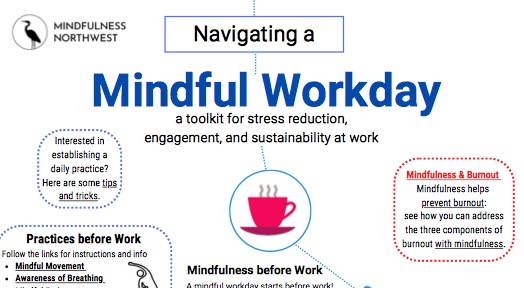
Each of the 7.8 billion human beings who share this planet has deeply rooted conditioning, uncountable cultural and familial variables, all of us in flux moment to moment. We are all unpredictable and imperfect, so attachment to unrealistic expectations of ourselves or others inevitably renders suffering as we fall into the traps of judgement, frustration, disappointment, anger, and anxiety.
Perhaps there is a different way to respond to the reality of our own sometimes conflicting values and impulses and the often confounding encounters with other human beings whose actions and opinions don’t make sense to us.
Mindfulness reminds us to begin close in, noticing first how we’re relating to those moments of dissonance in ourselves and with others. As we invite curiosity and openness into the room of our hearts and minds, we may recognize the habit of resisting conditions as they are. We might also see an added layer of wishing we weren’t struggling.
Especially helpful in these moments of reckoning, is the simple yet powerful quality of kindness, the “state of being gentle and considerate,” (Merriam-Webster). Kindness helps us to reach in toward ourselves and out to others with more tenderness and consideration. And amazingly, kindness helps the resistance to loosen, allowing us some space to be curious, explore, gain insight, and move toward acceptance, connection and understanding.
The task of bringing the practice of kindness into moments of conflict can seem daunting, especially when encountering all the -isms that polarize this fragile human family and threaten to divide us irreparably. Maria Popova, (Brainpickings), shares this wisdom, “The measure of true kindness — which is different from nicety, different from politeness — is often revealed in those challenging instances when we must rise above the impulse toward its opposite, ignited by fear and anger and despair.”
In the midst of difficult interactions, as we observe reactivity in ourselves or others, a deeply rooted practice of mindfulness and kindness can support us in exercising self-restraint and harmlessness when encountering opposing views, whether we’re in a conversation with a loved one or neighbor, attending a professional meeting, a rally, or listening to the news. It can also temper the urge to blame or discharge anger or react toward someone else’s anger in an unskillful or inflammatory outburst. In stepping back from reactivity long enough to gather our attention into the anchors of the body and breath, the space referred to in the Viktor Frankl quote, and the choice to re-orient toward a wholesome response, toward kindness, emerges. From that large room of awareness, we can also consider “…what wars are going on down there where the spirit meets the bone,” (Compassion, Miller Williams.) We have the option to see what’s behind the reactivity of others.
Practicing kindness, formally in meditation and informally in daily life, opens the heart to see the role of suffering in the reactivity of ourselves and others and moves us toward understanding even when we disagree.
For sure, this is not easy work, and to be clear, kindness is never an act of assent in the face of injustice. We can practice kindness right alongside fierce compassion as we stand for justice and human dignity while our mindful awareness supports the capacity to stay present and wholly connected. Mindful discernment is also a powerful assistant in knowing how best to offer kindness in a given moment, answering, “What is most needed right now?” Sometimes what’s most needed is further dialogue when all parties are able to be respectful, but other times, the kindest thing is a boundary as we request to end a conversation or respectfully agree to disagree.
Going forward during this extraordinary moment in our collective human history, we’re faced with many challenges. Finding common understanding and vision is imperative to moving toward solutions that will impact us globally. A lot is at stake for our complex, often jumbled, infinitely creative, and beautiful human family. A lot. Martin Luther King said so eloquently that we are woven together, “tied in a single garment of destiny.“
My hope for all of us, as we encounter each other, especially when we differ, is to remember first to pause, to connect to the breath, make space in our hearts and minds, recall our common good, and truly commit to kindness as the only response that makes sense anymore.
Kindness by Naomi Shihab Nye
Before you know what kindness really is
you must lose things,
feel the future dissolve in a moment
like salt in a weakened broth.
What you held in your hand,
what you counted and carefully saved,
all this must go so you know
how desolate the landscape can be
between the regions of kindness.
How you ride and ride
thinking the bus will never stop,
the passengers eating maize and chicken
will stare out the window forever.
Before you learn the tender gravity of kindness,
you must travel where the Indian in a white poncho
lies dead by the side of the road.
You must see how this could be you,
how he too was someone
who journeyed through the night with plans
and the simple breath that kept him alive.
Before you know kindness as the deepest thing inside,
you must know sorrow as the other deepest thing.
You must wake up with sorrow.
You must speak to it till your voice
catches the thread of all sorrows
and you see the size of the cloth.
Then it is only kindness that makes sense anymore,
only kindness that ties your shoes
and sends you out into the day to mail letters and
purchase bread,
only kindness that raises its head
from the crowd of the world to say
it is I you have been looking for,
and then goes with you everywhere
like a shadow or a friend.

